testsetset
Steven Ma joined Tencent in 2007, when most people in the world probably had not heard about the Shenzhen, China-based company.
Now Tencent is the world’s largest gaming company, and Ma runs that business. Tencent has also become one of the world’s most valuable technology conglomerates, one of the world’s largest social media companies, and one of the world’s largest venture capital firms and investors.
In the stock market, Tencent is worth $425 billion, more than Intel, Yahoo, HP, and IBM. That financial power is one reason that Tencent has been able to work with, invest in, or acquire some of the most interesting game companies in the world: Riot Games, Epic Games, Supercell, Frontier Developments, Glu Mobile, Grinding Gear Games, Skydance Media, Activision Blizzard, and Ubisoft.

Above: Assassin’s Creed: Odyssey is a big world.
But Ma told me in an interview at the Game Developers Conference that the 20-year-old company isn’t focused only on investing money in game companies. It operates a huge business in China, and it is expanding its reach as an operator in the West. It focuses on quality and working with the world’s leading creators.
June 5th: The AI Audit in NYC
Join us next week in NYC to engage with top executive leaders, delving into strategies for auditing AI models to ensure fairness, optimal performance, and ethical compliance across diverse organizations. Secure your attendance for this exclusive invite-only event.
And it is building platforms for the next generation of games, from cloud gaming to mobile distribution networks. Ma noted that the executive staff of Tencent includes some serious gamers, and that helps them focus on their strategy on innovative gameplay, taking risks on creative talent, and a deeper understanding of what gamers want and how they play.
Outside of China, Tencent reaches more than 200 million gamers with titles like Honor of Kings and PUBG Mobile. Last year, Tencent had a rare hiccup when the Chinese government stopped approving titles in Chinese market. But it bounced back after approvals resumed this year.
The company and its partners offer 140 games across 200 countries. Tencent is working with developers to help them deal with short development cycles, high demands for quality, complex business models, heavy investments required for operating live games, and understanding the behavior of gaming communities.
Ma doesn’t do a lot of interviews with Western press, but we managed to get some quality time with him at GDC 2019, where the company announced a new partnership with Unity. Here’s an edited transcript of our interview.
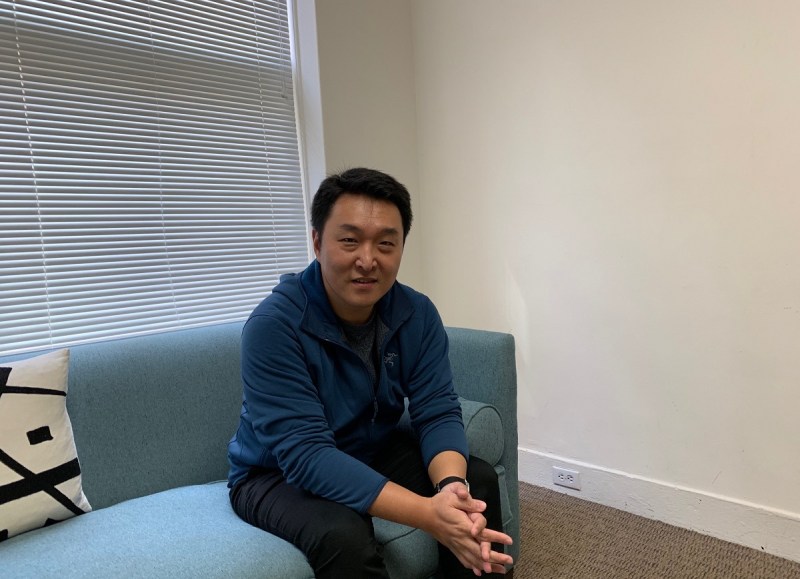
Above: Steven Ma, senior vice president, runs Tencent’s game business.
GamesBeat: I’ve watched Tencent from afar. I’ve talked on occasion with Randy Lee and Dan Brody, and they’ve helped me understand the company. But it is so big. It’s good to start with describing how you view the game business, especially as an important part within all of Tencent.
Steven Ma: First of all, we truly believe that games are a new thing. The technology itself — Tencent’s vision is to use technology to enhance and improve people’s lives. Every time some revolutionary technology comes to the mass market, everything changes — movies, TV, things like that. This time, in the last 10 years, information technology — computers, networking, data — is changing how people get entertainment and everything else around the world.
Internally I talk to our team members about games around many other new technologies, like AI or 3D graphics or using networks to connect people. What’s the new entertainment that comes out of that? It’s games. We believe that games, in the future, will use more and more new technology to create something new.
If you consider the same kind of stages Hollywood went through, we’re maybe only in the 1930s. Movies came about only around the turn of the century. The game industry is only about 40 years old. It’s still very early. Internally, the vision for our teams is to provide new kinds of entertainment to the whole market, for everyone. That’s our dream.
We also believe that games are a creative-led business. We need to work with top-tier developers, internally and with other companies. We’re looking for a lot of top-tier partners to work together on games. You’ll see a lot of partnerships between us and different partners around the world.
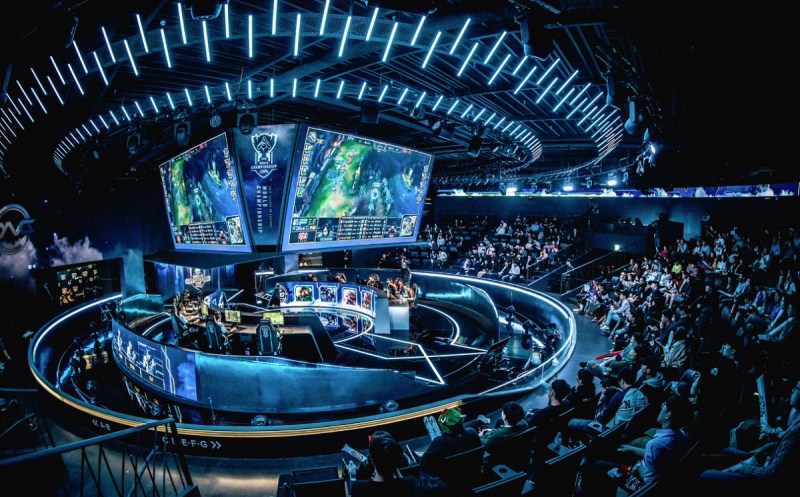
Above: Riot Games’ League of Legends is the biggest esport.
GamesBeat: Starting with your investment in Riot, I noticed that if someone was doing a deal with a really interesting, high-quality company, Tencent was often the one doing it. That doesn’t seem like an accident. You guys figured out how to do deals with top developers, and you’re doing deals that a lot of other companies are missing out on. Where did that start, or where did it come from, the investment side of the business?
Ma: Part of the reason we can do that kind of deal, like Riot Games or other companies in the U.S. — we have a joke about Tencent. Tencent is a gamer with a billion-dollar budget to do whatever they want to do. [laughs] Tencent is quite unique in that respect. The whole executive team, we play a lot of games.
Our CEO, Ma Huateng, he’s great at racing games and music games. When music games were hot he could compete with professional players. He’s a real gamer. Martin Lau, our president, he’s one of the top 100 players in Clash Royale. Neither of them is our highest-ranking player, though. Our best player is actually our general counsel. For a minute after a server update he was actually number two worldwide in Clash Royale. For me, I like to play a lot of games. I’ve played maybe 2,500 matches in League of Legends.
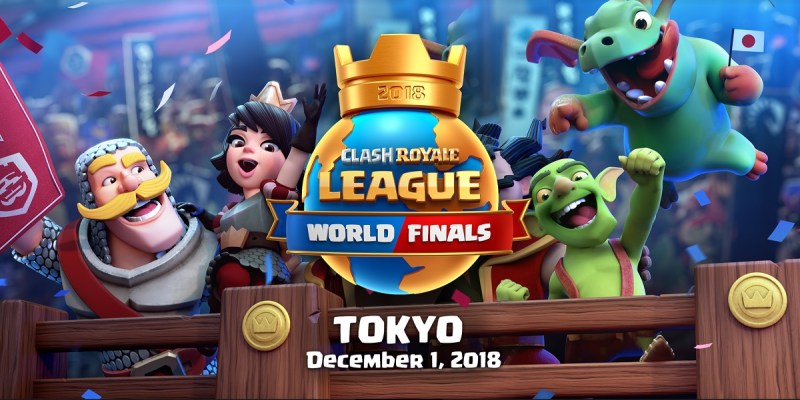
Above: The Clash Royale League world finals are headed to Japan.
GamesBeat: Did your management team ever prefer more Chinese games, or more western games?
Ma: No, we’ve played all kinds of games, worldwide. Since we started in the game business, we’re looking worldwide for the highest quality games. When I was a teenager in China, it was hard to find really good games. But in Shanghai I had a lot of chances to play better games. That’s what we want to do, to bring the best games to more places and more people. We think that’s good for our business. We bring the best games to the Chinese market, and we bring the best games to emerging markets.
Back to the case of Riot Games, at the time we spent a lot of time playing DOTA. We played that for a very long time. I’d also played Counter-Strike before. I believed in community-driven games. Innovation itself is sometimes random. You can try a thousand times and one time you’ll come up with truly great gameplay.
We talked a lot to the DOTA community in those days, and some people among them wanted to build their own game. That was Riot Games, which was only nine people at the time. We did our first round of investment at a really early stage. Another part of why we did that — the way we push our business, we believe that in the games business there are three important things. One is story, one is gameplay, and one is technology. You need something unique in all three of those areas to be in the top tiers of the industry.
Of those three, we believe that gameplay is the most important. It’s different in different game genres, different game categories. In each genre, you need to reach the top tier — not the top 100, but the top one or two. We’re always looking for people or teams with products that have the potential to get to that position, number two or number one. Riot was a good example.
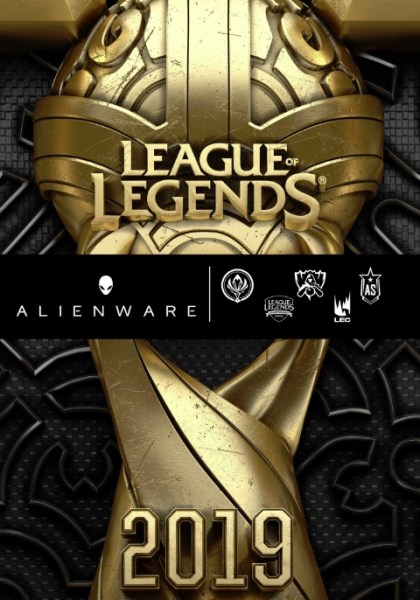
Above: Alienware and Riot Games have teamed up.
GamesBeat: Riot was interesting, too, in that you only bought two-thirds of the company at first. The last third was in the hands of the founders. The way that looked from the outside was that they still had motivation to stay and increase the value of the company. Other acquisitions have happened where talent just walks out the door.
Ma: This isn’t just how we’ve worked with Riot Games. It’s the same with all of our portfolio of companies, like Epic Games. We did that deal almost six years ago. I saw a demo of Fortnite about seven years ago. It’s been a long, long time.
Whenever we do an investment, we’ll ask the founders the same question: why are you in this industry? If the answer is something like, “To make money, to follow this business model,” we’re a little bit worried about that. We want to find people who really love games, who have a passion to create great games. We have a lot of space and resources to support people like that.
Even when we do a full acquisition, the people are still there. Tencent, internally, is a good place to make great games. That’s quite important to the industry. The industry is about creative innovation, about people making great games.
GamesBeat: It’s different when you make an investment and work with a company and the founders stay to grow it into something bigger than it used to be. It seems like that’s happened with almost every one of your well-known deals. I’ve looked at things like Activision buying Infinity Ward, and it’s a disaster. That’s why Respawn exists.
Ma: Yeah, there are a lot of stories like that in the industry.
GamesBeat: It’s not easy to buy and manage an acquisition.
Ma: Every time I talk to our partners about what we can do, first of all we’re gamers. We want to create new games. That’s a philosophy we agree with. Second, Tencent’s platform can give you a lot of resources. We can help make much better games. We have a big network that gives easy access to users. It’s not just that we have things like QQ, although that makes it easy to do marketing. It’s not only marketing. We believe in community. We believe we have the skills to build a community, and the community can help build a better game. We use the network to allow developers to understand what kind of players they want. They can easily to talk to their community.
GamesBeat: Is that a matter of instrumenting the games, being able to measure everything in them?
Ma: Yeah, we have a lot of tools they can use. More important, it’s about how you can communicate with your community, and how community members can communicate with each other. That’s really helpful for developers. We have a lot of know-how and technology. We’ve done great work on things like anti-cheating. Developers can use that technology worldwide. Tencent runs almost a million servers. We know how to maintain big scale on the server side. We can do a lot of different things.
The way I describe it to our partners, Tencent offers a free menu. On that menu you have a lot of resources and technology. If you want it, just take it. If you don’t want it, we don’t want to force anyone to use it. It’s just additional resources to help developers to make games.
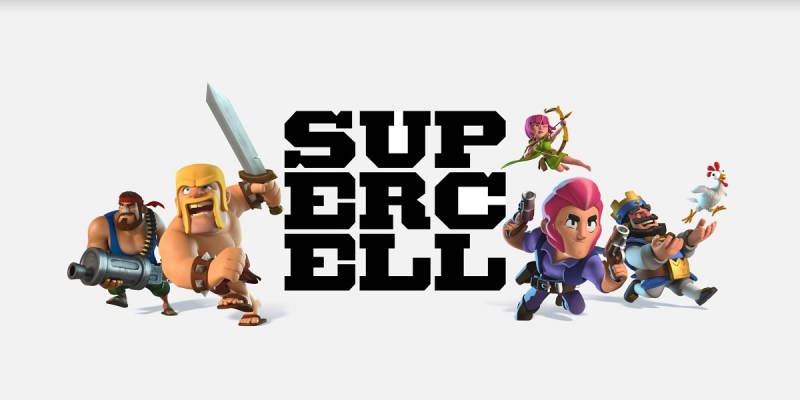
Above: Supercell
GamesBeat: Do you think you still do something different from other companies out there? Nexon, for example, bought Big Huge Games. NetEase just bought a lot of Quantic Dream. Pearl Abyss bought CCP. One of the things Nexon always says is that they can do live operations really well. They’ll take a game and it can be more successful because they apply their live operations expertise. That’s competition for you, but do you think you can do something better than other online game companies in Asia that do live operations well, companies with a similar profile to Tencent?
Ma: Of course we can do better. The more important thing here is — we’re also in Asia, but I don’t believe Tencent and Nexon are the same kind of company. We’re an internet company and a technology company. We have more that we can do than just live ops. Beyond live ops, we do a lot of new things.
For example, take Riot Games. One of the key things making League of Legends so successful is because they helped define a new game genre, the MOBA. A big part of that is esports. No one did esports on a scale like that before, but we could do that with Riot Games because we already ran that kind of online community. We know what the community wants to do. They don’t just want to play games. They want to watch them. Other games might not have that capability because they don’t have the scale of internet services.
Another key thing for League of Legends is making each match more fun and more balanced. That means doing matchmaking well. You need to have the same level of people playing each other. To do that kind of great matchmaking, you need to get more and more people in the group playing together, so it’s easy to find people at the right level. We created new technology together with Riot Games. In China we can get more than half a million people on the same server at the same time to do matchmaking together. That’s made the game much better. Live ops is just one part of what defines an online game.

